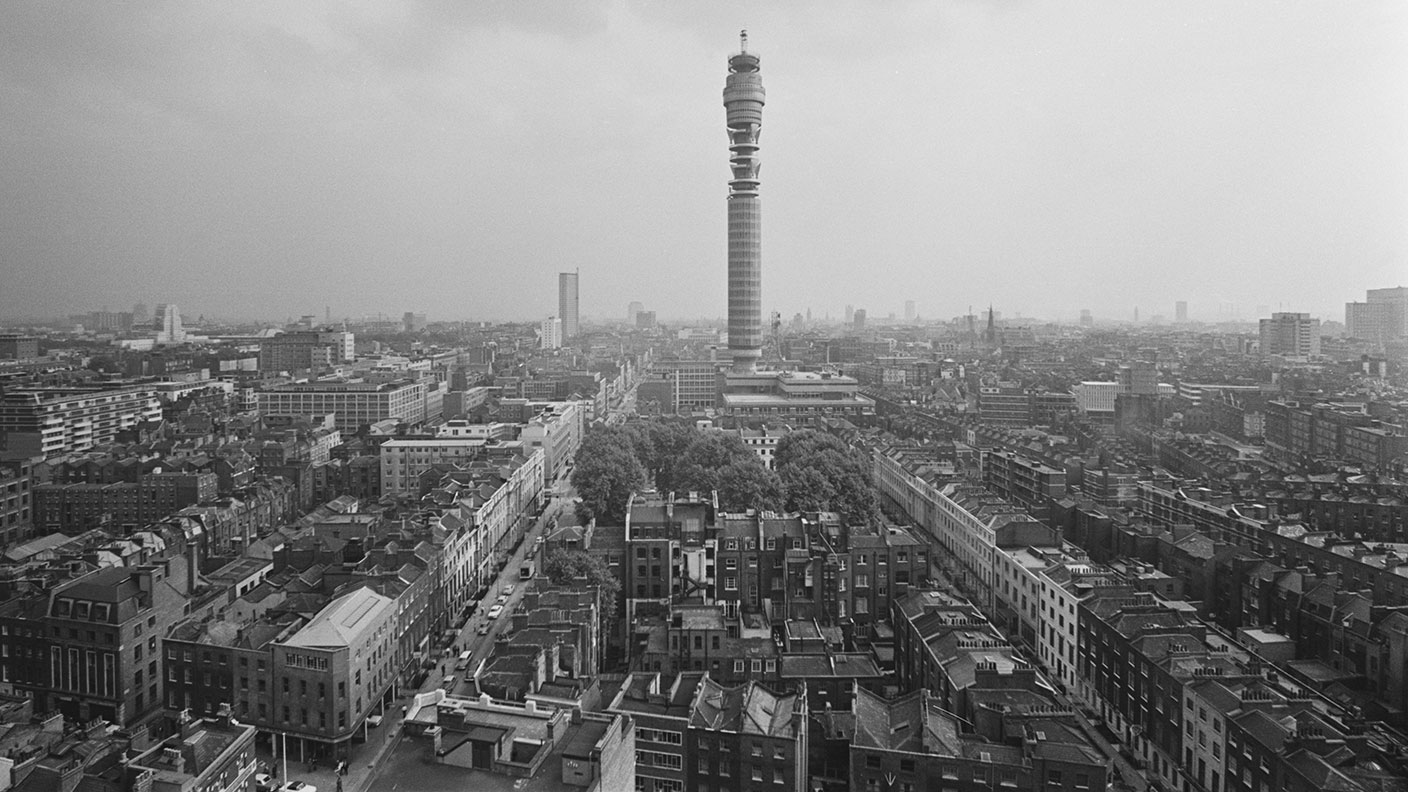
Get the latest financial news, insights and expert analysis from our award-winning MoneyWeek team, to help you understand what really matters when it comes to your finances.
You are now subscribed
Your newsletter sign-up was successful
Want to add more newsletters?

Twice daily
MoneyWeek
Get the latest financial news, insights and expert analysis from our award-winning MoneyWeek team, to help you understand what really matters when it comes to your finances.

Four times a week
Look After My Bills
Sign up to our free money-saving newsletter, filled with the latest news and expert advice to help you find the best tips and deals for managing your bills. Start saving today!
In the late 1950s, the telecommunications revolution was just getting started. The telephone network was expanding fast, and TV had recently expanded to two stations. The country needed new infrastructure. The options were to lay thousands of miles of costly cables, or build a tower to transmit via microwave. The General Post Office decided on the latter.
And so, a transmission tower was designed for the centre of London. It would carry aerials for the Post Office's microwave network, would be able to handle 150,000 simultaneous telephone connections, and would provide enough bandwidth for 40 channels of black and white or colour television.
Construction began in June 1961, and took four years at a cost of either £2.5m (if you believe Wikipedia) or £9m (if you believe BT). At 189m (620 feet) high, it was Britain's highest building, overtaking St Paul's Cathedral. It would remain the country's tallest until the 183m National Westminster Tower (now Tower 42') opened in 1980.
MoneyWeek
Subscribe to MoneyWeek today and get your first six magazine issues absolutely FREE

Sign up to Money Morning
Don't miss the latest investment and personal finances news, market analysis, plus money-saving tips with our free twice-daily newsletter
Don't miss the latest investment and personal finances news, market analysis, plus money-saving tips with our free twice-daily newsletter
The Post Office (now BT) Tower was officially opened on 8 October 1965 by the prime minister, Harold Wilson who made a telephone call to the Lord Mayor of Birmingham. And on 19 May 1966, the tower was opened to an eager public by Tony Benn, then the Postmaster General, and Billy Butlin, holiday camp tycoon (Butlin's had taken the lease on the “Top of the Tower”, the 120-seat revolving restaurant on the 34th floor). The price to get in to the tower was 4/- for adults and 2/- for children – a bargain.
In the first year, nearly one million people took the high-speed lifts to the top; 105,000 of them dined in the restaurant. An Act of Parliament meant that the tower was the only building in the country that it was legal to evacuate by lift in the event of a fire.
But the fun all came to an end in 1971. At 4.30AM, 31 October, a terrorist bomb exploded, causing extensive damage. The tower was closed to casual visitors soon after, by which time 4,632,822 people had ascended. The restaurant closed in 1980.
These days, the tower remains closed to the public, and is used by BT for corporate events. Its distinctive microwave transmitters were removed in 2011, but it is still used as a TV relay centre.
SEE ALSO:
BT is making progress and the dividend is back – but is it time to buy yet?
Get the latest financial news, insights and expert analysis from our award-winning MoneyWeek team, to help you understand what really matters when it comes to your finances.

-
 Should you buy an active ETF?
Should you buy an active ETF?ETFs are often mischaracterised as passive products, but they can be a convenient way to add active management to your portfolio
-
 Power up your pension before 5 April – easy ways to save before the tax year end
Power up your pension before 5 April – easy ways to save before the tax year endWith the end of the tax year looming, pension savers currently have a window to review and maximise what’s going into their retirement funds – we look at how
-
 31 August 1957: the Federation of Malaya declares independence from the UK
31 August 1957: the Federation of Malaya declares independence from the UKFeatures On this day in 1957, after ten years of preparation, the Federation of Malaya became an independent nation.
-
 13 April 1960: the first satellite navigation system is launched
13 April 1960: the first satellite navigation system is launchedFeatures On this day in 1960, Nasa sent the Transit 1B satellite into orbit to provide positioning for the US Navy’s fleet of Polaris ballistic missile submarines.
-
 9 April 1838: National Gallery opens in Trafalgar Square
9 April 1838: National Gallery opens in Trafalgar SquareFeatures On this day in 1838, William Wilkins’ new National Gallery building in Trafalgar Square opened to the public.
-
3 March 1962: British Antarctic Territory is created
Features On this day in 1962, Britain formed the British Antarctic Territory administered from the Falkland Islands.
-
10 March 2000: the dotcom bubble peaks
Features Tech mania fanned by the dawning of the internet age inflated the dotcom bubble to maximum extent, on this day in 2000.
-
9 March 1776: Adam Smith publishes 'The Wealth of Nations'
Features On this day in 1776, Adam Smith, the “father of modern economics”, published his hugely influential book The Wealth of Nations.
-
 8 March 1817: the New York Stock Exchange is formed
8 March 1817: the New York Stock Exchange is formedFeatures On this day in 1817, a group of brokers moved out of a New York coffee house to form what would become the biggest stock exchange in the world.
-
7 March 1969: Queen Elizabeth II officially opens the Victoria Line
Features On this day in 1969, Queen Elizabeth II took only her second trip on the tube to officially open the underground’s newest line – the Victoria Line.
